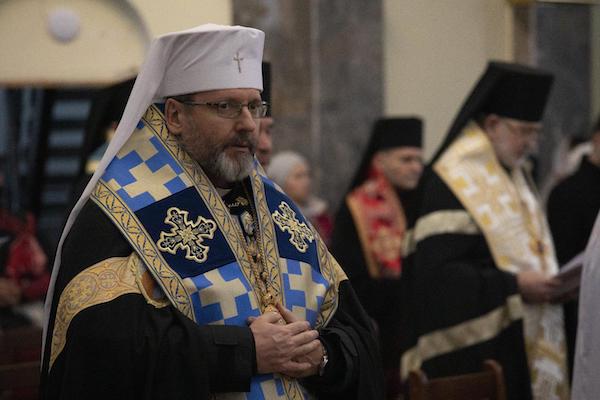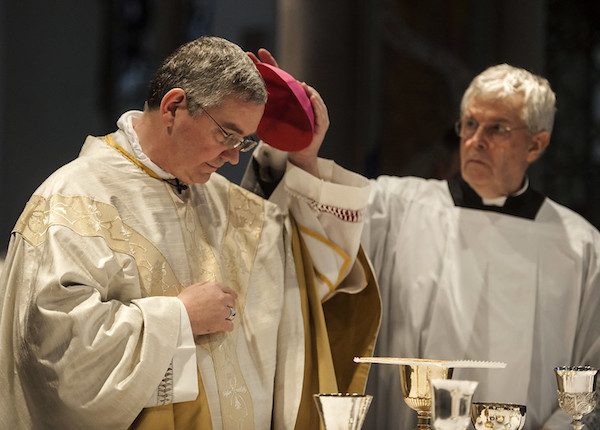Pope Francis has appointed Plymouth’s Bishop Mark O’Toole as the new Archbishop of Cardiff and the Bishop of Menevia.
After a provision was made by the Holy See, the archbishop-elect has been put in charge of two of the three dioceses in Wales. Cardiff and Menevia will retain their separate identities and structures but, according to the Vatican, will be led by Bishop O’Toole “in persona Episcopi” (in the person of the bishop).
While it covers a significant geographical area, including Swansea, Carmarthen, Llandrindod Wells, Haverfordwest and Port Talbot, Menevia is one of the smallest dioceses in England Wales in terms of numbers with an estimated 26,000 Catholics and an annual income of just over £2 million in 2021. There had been speculation that diocesan boundaries in Wales could be redrawn and Menevia merged into a larger entity but the new arrangement allows for the diocese to continue.
The last Bishop of Menevia was Tom Burns, who retired in 2019, and since then the diocese has been overseen by the Archbishop of Cardiff, George Stack, who has served as Menevia’s administrator. Archbishop Stack has been in charge of the Cardiff archdiocese since 2011.
Bishop O’Toole, 59, was born in London and was ordained as a priest of Westminster archdiocese in 1990 after training at Allen Hall seminary, in Chelsea, South West London. He returned to Allen Hall as Dean of Studies from 1996 to 2002 and was then Rector from 2008 to 2014, a post he took up after spending six years as private secretary to Cardinal Cormac Murphy-O’Connor.
He has a master's degree in Theology from the University of Oxford, was a governor at Heythrop College and served on the ethics committee at the Hospital of St John and St Elizabeth.
The archbishop-elect has been Bishop of Plymouth since 2014 and in 2018 took part in the synod of bishops in the Vatican on young people, faith and vocational discernment. He also serves as chairman of the Department of Evangelisation and Discipleship for the Bishops' Conference of England and Wales.
“I face the task ahead both with excitement and a certain trepidation, conscious of my own weaknesses,” he said following his appointment.
“Wales and Herefordshire are new territory for me, having only visited for holidays and retreats. I am struck by the rich history and dramatic geography of the two dioceses, with their vibrant multicultural cities, rural valleys, and beautiful coastlines, their agrarian and modern technological innovation and diversity. I am grateful for the roots we share in our rich Celtic culture.”
The bishop said he looked forward to “steeping myself in the historical reality and diverse experience of the two Dioceses, as we work more closely together” although he recognised that “this will take time” and cited the Welsh saying “Rhaid cropian cyn cerdded” (You must crawl before walking).
His new archdiocese covers the city of Cardiff along with the Welsh valleys, Bridgend, Hereford, Newport, North Gwent and Pontypridd.
Cardinal Vincent Nichols offered Bishop O'Toole his “fullest support and fervent prayers”, while Archbishop Stack said that Wales would be blessed by his experience and background: “His Celtic heritage will resonate with the Catholic faithful in Wales and in the wider community of his new home.”
The archbishop-elect will be installed in his new post at Cardiff Cathedral on 20 June, the feast day of Welsh martyrs Saints Julius and Aaron. Along with Cardiff and Menevia, the third Welsh diocese is Wrexham.



 Loading ...
Loading ...